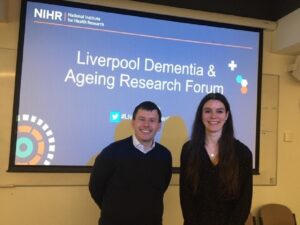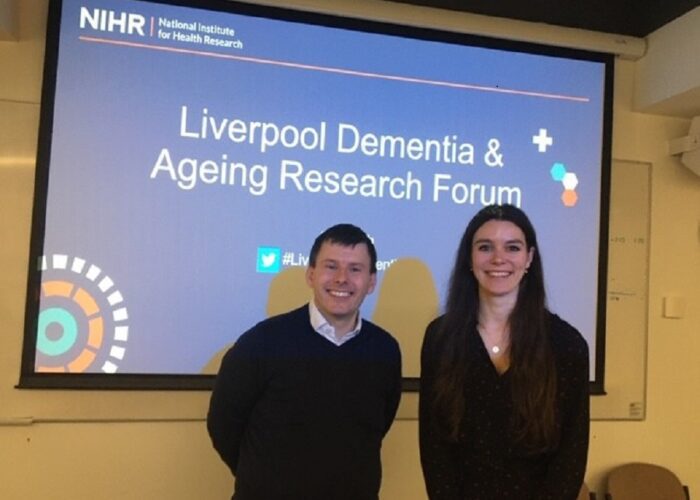
Rarer forms of dementia were the focus of an interesting discussion which shone a light on the condition and its effects.
With not a spare seat in sight, Dr Rhys Davies gave the talk at the University Of Liverpool on Wednesday.
The general public, students, NHS staff and those concerned or affected in some way by dementia, were all in attendance as the event delved deeper into more acute types of the disease, as well as the clinical syndromes and what part of the brain is most commonly affected.
Dr Davies, a neurologist at a The Walton Centre clinic, discussed ways for possible treatment in the future.
He was also on hand to provide a list of its more rare forms, such as Huntington Disease and Lewy Body Dementia, as well as the different behaviour patterns that comes with that.
During his talk, Dr Davies advised: “What we want is to identity the underlying disease and to undo that, but until we can, what we need to do is to extenuate the positive, and whatever rare type of dementia you have, to concentrate on those things you can do, rather than those things that you can’t.”
Youtube: Tom Battison
https://www.youtube.com/watch?v=QPlHFFV-Bb4
The event was set up by the Dementia & Ageing Research Forum, which is run by Dr Clarissa Giebel, Post-Doctoral Researcher at the University Of Liverpool and at the NIHR ARC NWC, who has been a principal investigator into many dementia projects.
Speaking on the topic of the event, she told JMU Journalism: “What you can really easily identify with dementia is daily activities. So when people struggle to do daily tasks such as going to the supermarket or managing your finances, that’s the first activity that shows up problems, and you can pick that up in everyday life. It’s not just about forgetting things.
“I did a study recently which we’re just finishing up. It’s to understand the needs of people with rarer dementia types and how we can improve their well being in the community, because what we’re seeing is that people with rare dementia don’t have the services adapted to their needs.
“As you heard in the talk, Rhys was saying those with frontotemporal dementia have different symptoms but what they do is have really extreme behaviours. So sometimes people don’t feel comfortable with behavioural variant frontotemporal dementia to go to the groups.
“So where do they go? There’s this huge need gap out there but there’s definitely more research coming along, for example in Lewy Body Dementia, looking at genes as well, but also at care, which I think is really important.”

